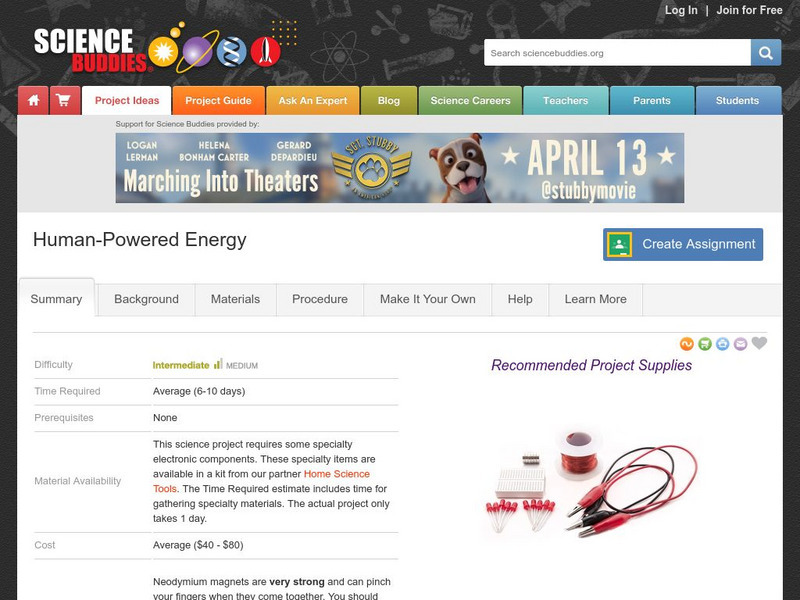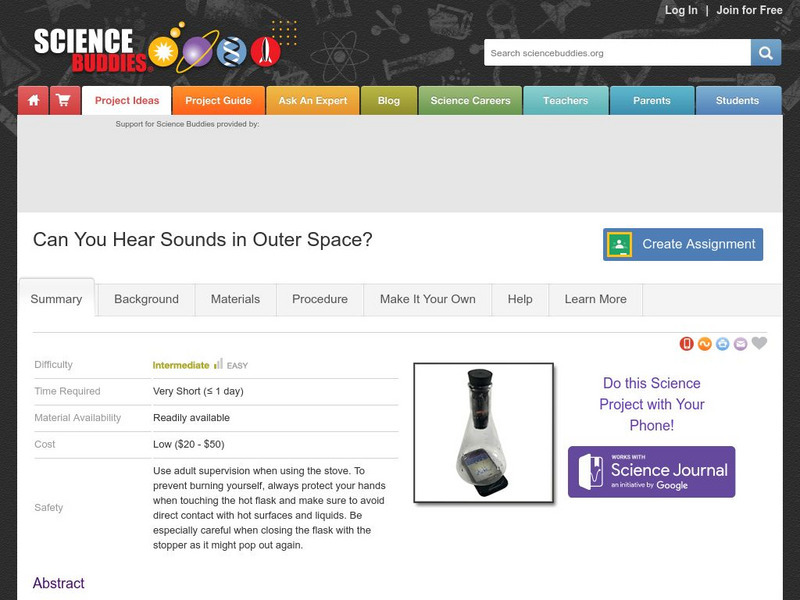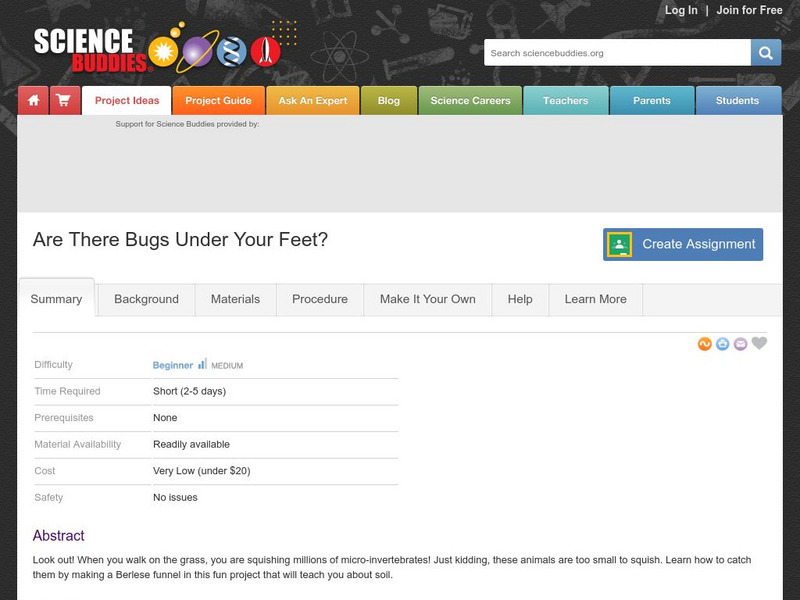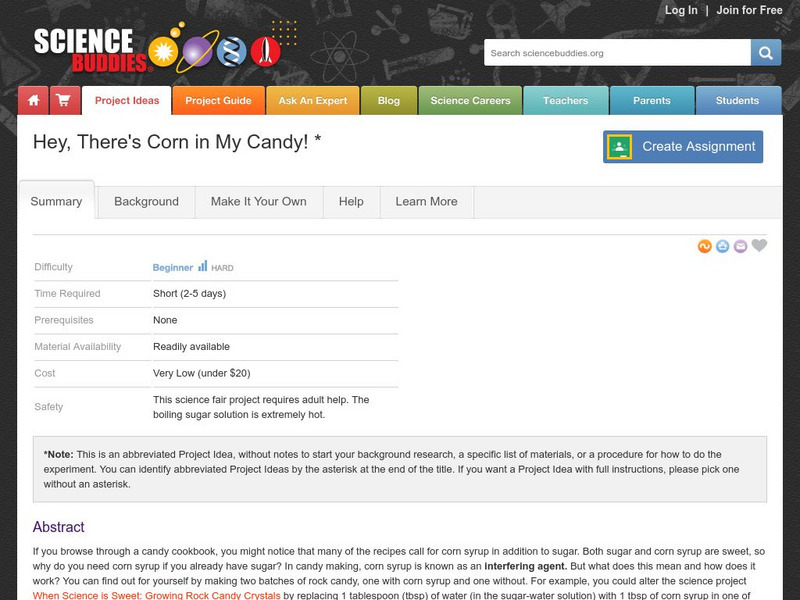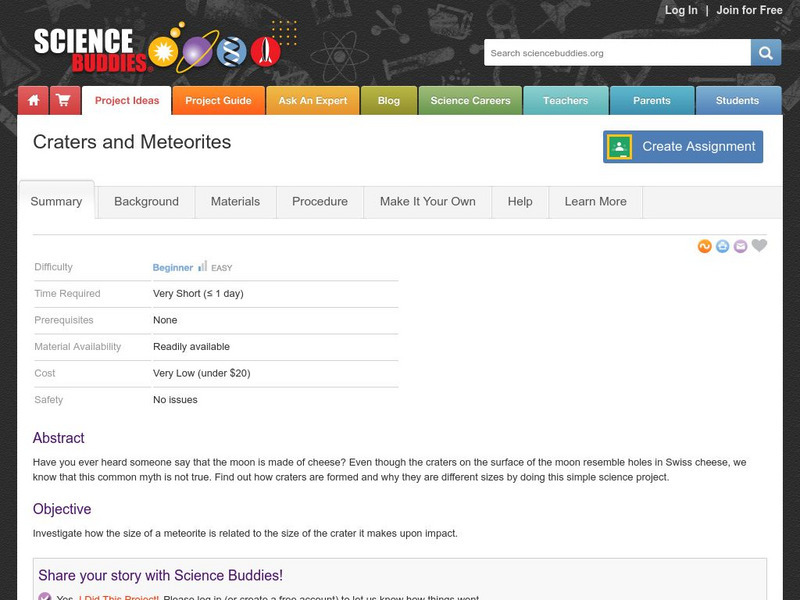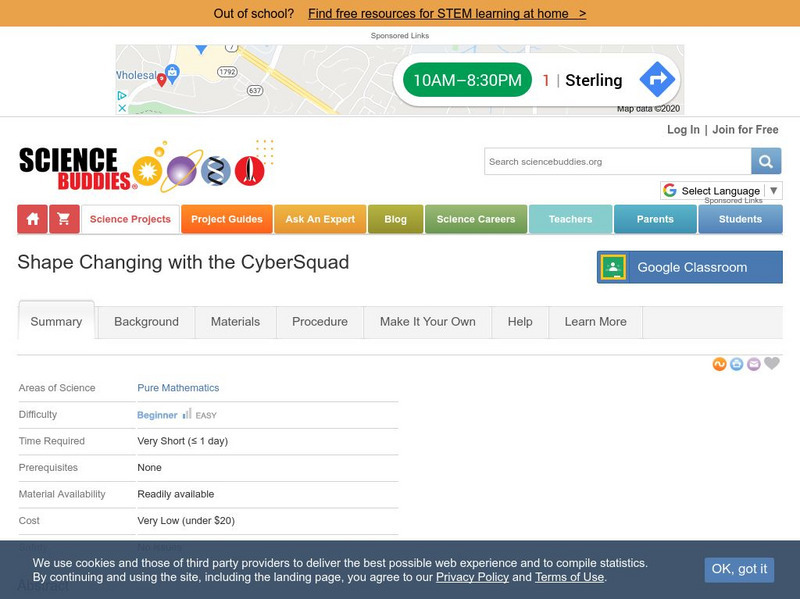Science Buddies
Science Buddies: Which Materials Are the Best Conductors?
There are two main types of materials when it comes to electricity, conductors, and insulators. What are they made of? Find out by testing different materials in a circuit to see which ones conduct the most electricity.
Science Buddies
Science Buddies: Shaking Up Some Energy
Shake N' Light flashlights have been advertised on televisions across the nation in the recent year. But many do not understand just how they get energy to light up the bulb without using batteries. Do this experiment to make your own...
Science Buddies
Science Buddies: What Makes the Rings of Saturn?
Saturn is a unique planet because of the many beautiful rings surrounding it. How are all of those rings made? Why is each ring unique?
Science Buddies
Science Buddies: Where Did All the Stars Go?
If you live in a big city or urban area it is hard to see many stars at night. In most urban areas only the most brilliant stars, planets and the moon can be seen. This is because of something called light pollution which is the...
Science Buddies
Science Buddies: The Moon and the Stars
When you are in the city, only a few of the brightest stars are visible. But when you are in the country, you can see many more stars than you can count. Sometimes you can even see the bright belt of our galaxy, the Milky Way. In this...
Science Buddies
Science Buddies: Weather and Climate in Your Neighborhood
Do you live in an area where the weather changes a lot from season to season throughout the year? Or do you live in a place where the weather stays pretty much the same all year long? How dynamic is the weather, and how does it compare...
Science Buddies
Science Buddies: Squishy Robot Simulator
Robots come in many shapes and sizes. Everything from the Mars Rover to a toy dinosaur is a well planned machine designed to suit its purpose. In this experiment you will test different robot designs with an online simulator.
Science Buddies
Science Buddies: Building the Tallest Tower
Skyscrapers are impressive structures. What does it take to design a building so tall? Engineers use strong materials and innovative design to push the limits of gravity. In this experiment you will use LEGO components, rubber balls, and...
Science Buddies
Science Buddies: Solving a 'Windy' Problem
The wind is a powerful force, enough to erode whole hillsides over time. Building structures in windy environments challenge civil engineers with special safety concerns. A wall in a windy area can either shield you from the cold or fall...
Science Buddies
Science Buddies: Outer Space, the Silent Frontier: An Experiment on Sound Waves
In outer space there is utter silence. There are no sounds of traffic jams or thunderstorms or crashing waves. No buzzing bees or babies crying. Just silence. In this experiment, you will discover why empty space is void of sound.
Science Buddies
Science Buddies: You've Got Permission to Be a Backseat Driver!
You can see what happens to your car's fuel efficiency when it takes you downtown to see a movie, up a hill for a great view, or out for a cruise on a flat country road. This is because a car's fuel efficiency does not remain the same...
Science Buddies
Science Buddies: Sorting Out Sedimentation
Sedimentary rock forms in layers that are deposited one after the other over long periods of time. Oftentimes, sedimentary rock contains fossils and other debris that are deposited within the layers. Use this experiment to investigate...
Science Buddies
Science Buddies: Bottled Up Buoyancy
Sure you understand what makes submarines cool, they allow us go underwater and explore the sea! But understanding how they function is a completely different matter. This lab will help you investigate how submarines dive and surface by...
Science Buddies
Science Buddies: Are There Bugs Under Your Feet?
Within the grass there are millions of micro-invertebrates. Learn how to catch them by making a Berlese funnel in this fun project that will teach you about soil.
Science Buddies
Science Buddies: Hey, There's Corn in My Candy!
In candy making, corn syrup is known as an "interfering agent." You can find out just what this agent does by making two batches of lollipops, one with corn syrup and one without and examining the differences between the two. Once you...
Ducksters
Ducksters: Kids Science: Projects and Experiments
Kids learn by experimenting with science. Ideas for scientific projects on weather, sound, electricity, ecology.
Science Buddies
Science Buddies: Make Your Own Markers
Do you ever wonder how markers are made? Where do all of those colors come from? Many of the colorful dyes we use come from plant pigments. Pigments are what make the world around us so colorful. How do chemists turn those natural plant...
Science Buddies
Science Buddies: Craters and Meteorites
Have you ever heard that the moon is made of cheese? Even though the craters on the surface of the moon resemble holes in Swiss cheese, we know that this common myth is not true. Find out how craters are formed and why they are different...
Science Buddies
Science Buddies: Do Preferences Bias Our Choices?
In this science project you will test whether color preference will affect repetitive tasks that require fine motor coordination, like picking up small objects very quickly. Find out if your color preferences will bias these repetitive...
Science Buddies
Science Buddies: Moving Water With the Archimedes Screw Pump
Amaze your friends and family by moving water with just a few turns of your wrist, this is known as an Archimedes screw. In this science project, you will build a very simple Archimedes screw, to transfer water from a low-lying location...
Science Buddies
Science Buddies: What Color Are the Leaves Really Turning?
Everyone loves the beautiful colors of fall, but where they come from and how they change color is a mystery. In this project, you will uncover the hidden colors of fall by separating plant pigments with paper chromatography.
Science Buddies
Science Buddies: Shape Changing With the Cyber Squad
In this project, you will make 2-dimensional templates, called nets, that fold up into 3-dimensional (3-D) shapes. By making shapes of different sizes, you will be able to see how 3-D shapes change with size. In your findings you will...
Science Buddies
Science Buddies: What Are You Blubbering About?
Baby Beluga may swim in the deep blue sea, but the song doesn't mention how cold it is out there. Find out in this short project how a bit of blubber can be a useful adaptation when the water is ice cold.
Science Buddies
Science Buddies: Fun or Frustrating?
Video games have different difficulty settings, from easy to hard mode. Ask volunteers who have never played the game before to try it out. Some of them should use the easy mode and others should use the hard mode, this will ensure that...



